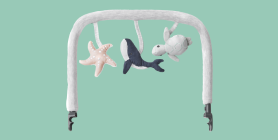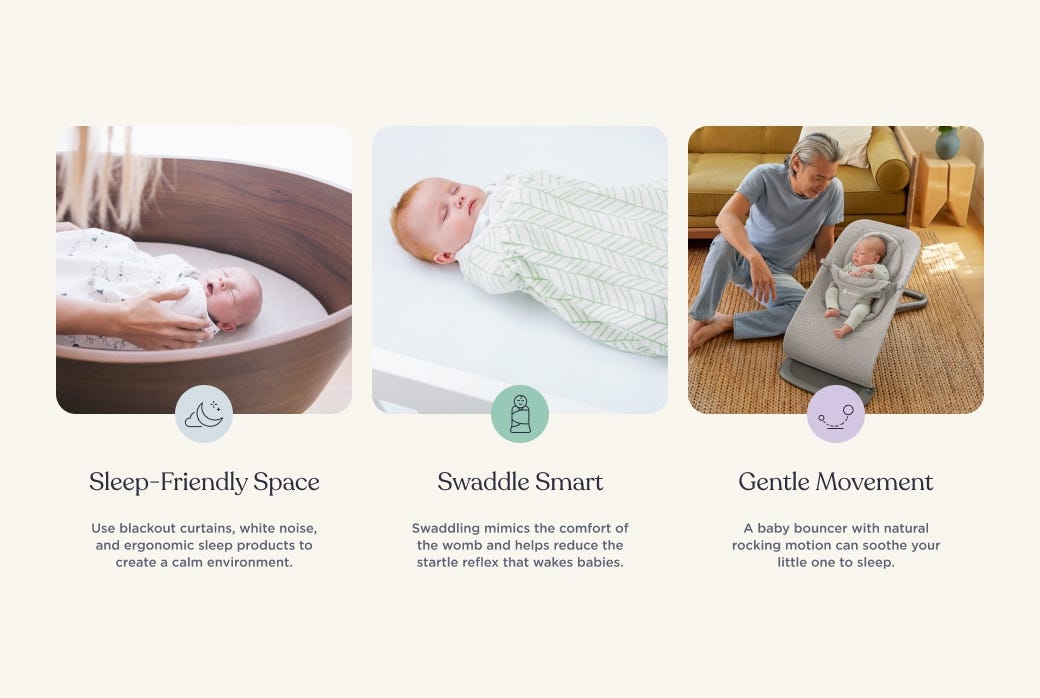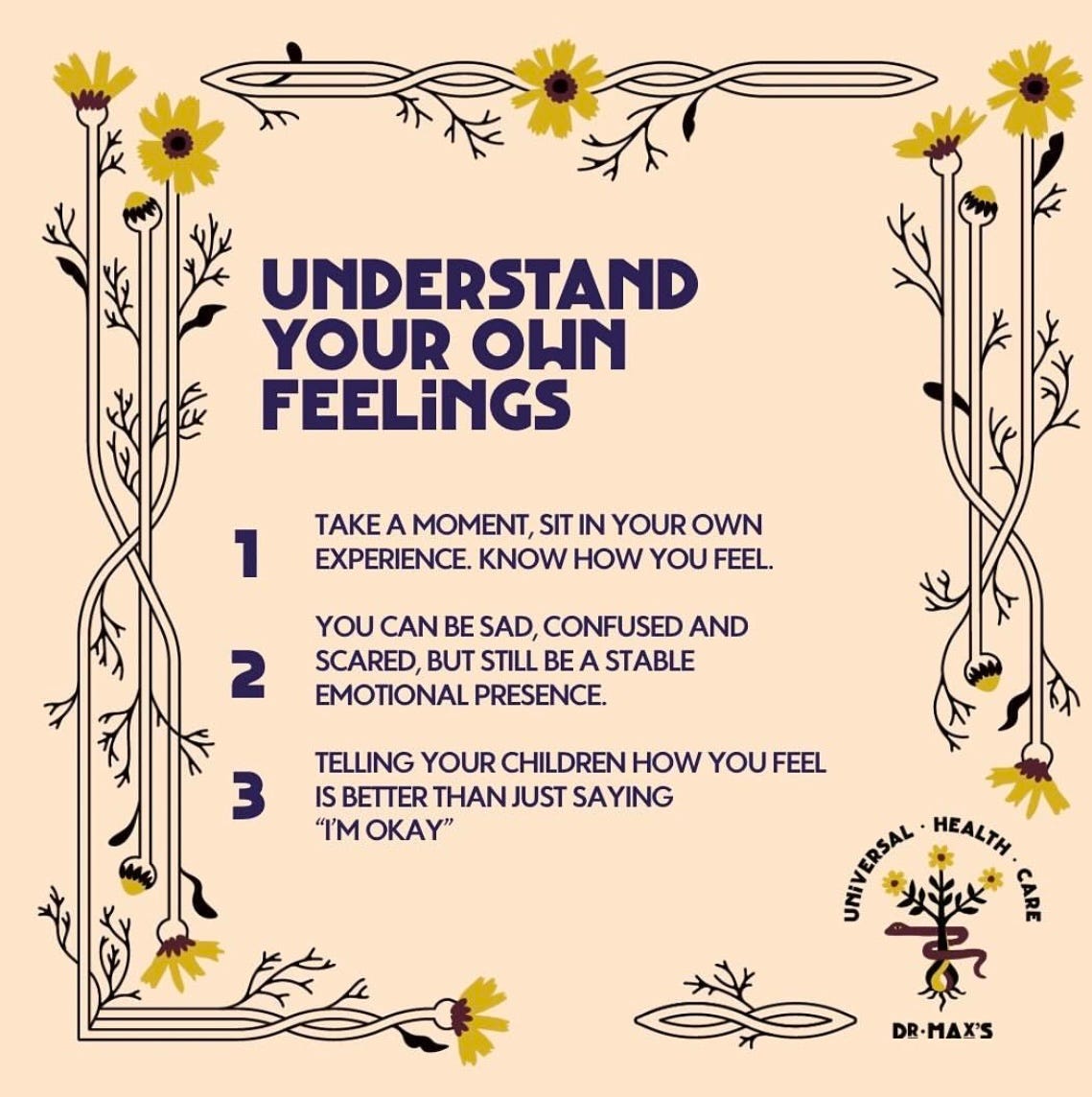Mental Health

Postpartum Essentials that Keep Moms Moving Forward
Steps to bring postpartum support closer.
Parenthood is life-changing—and the postpartum journey can be as overwhelming as it is beautiful. Understanding postpartum and even perinatal mental health is an important piece of your new life as a parent. Let us help you find your rhythm, connect with your baby, your partner, and yourself, and make space for the joys of this new chapter.
Navigating Postpartum with Grace
Both Joy and Challenge Are Part of the Journey
The postpartum period is filled with highs and lows, and it’s okay to feel both at once. From sleepless nights to heartfelt firsts, you deserve tools and support to help you adjust while taking care of your mental and emotional well-being.
Postpartum Mental Health FAQs
The questions you have. The answers you deserve.
plus-circle
How can I bond with my baby when I feel so tired?
plus-circle
What’s the best way to maintain connection with my partner?
plus-circle
How do I carve out time for myself?
plus-circle
How do I know if I have a postpartum mood disorder?
Finding Balance During Postpartum


Connection is Key
Get the postpartum mental health support you need with the help of products you can trust.
- With Your Baby: Baby carriers make skin-to-skin contact easier, deepening your bond and soothing your little one.
- With Your Partner: A lightweight stroller turns simple outings into moments to nurture your relationship.
- With Yourself: A baby bouncer provides a safe space for your baby, so you can take the time to breathe, meditate, or simply rest.

Featured Products for Your Postpartum Journey
Essentials to Help You Thrive
Featured Products for Better Sleep
Sleep Essentials to Save Your Nights
Start Your Journey with Confidence
The Tools to Help You Find Your Balance
Postpartum is full of transitions, but you don’t have to navigate it alone. Ergobaby’s products are designed to support your bond with baby, nurture your relationships, and make room for self-care—all while giving you confidence in your parenting journey.
Blog Post Header
Hi friend. I love you. I may not know you personally, but I’m taking time to write this because I see you, I’m with you, I love you, and I’m here to offer support that I hope will be of value.
There’s no easy way to experience or discuss such large and hard topics. Give yourself grace, space, and time. The emergency has already happened, and while your body is likely still in a state of emergency, you and your children have T-I-M-E to process. There’s no rush to address every thought, fear, or worry today, however here are some things to support you through this time:
You Don’t Have to Hide Your Sadness
You can be sad and stable. In a time of such instability, stability will be one of you and your children’s greatest needs. Finding stability means facing your sadness. Many of us were taught to hide our sadness, you don’t have to hide it; you have to manage it.
You can show your stability by saying things like, “Yes, I’m sad right now. This was a sad thing that happened. I’m going
Understanding Postpartum Depression in Dads
Postpartum depression in dads, often referred to as paternal PPD, can occur due to hormonal changes, psychological stress, and lifestyle adjustments following the arrival of a new baby. Unlike mothers, whose PPD is often connected to hormonal shifts during and after pregnancy, fathers' depression is more likely linked to external stress factors such as changes in their relationship, financial pressures, and lack of sleep.
Why Dads’ Postpartum Depression Often Goes Unrecognized
Cultural stereotypes aboutThe arrival of a new baby is often portrayed as an unendingly joyous time, but the reality for many parents can be far more complex. Postpartum depression (PPD) is a condition that casts a shadow over this transformative life stage, affecting a significant number of new parents each year. Recognizing the postpartum depression signs, understanding its symptoms, seeking appropriate treatment, and knowing where to find help are critical steps in the journey towards recovery.
Postpartum Depression Definition
Postpartum depression is a severe, debilitating condition that can occur after the birth of a child. It's characterized by profound feelings of sadness, emptiness, or hopelessness that last for two weeks or more, significantly interfering with a parent's ability to function daily. Unlike the mild and short-lived "baby blues," PPD requires professional intervention and support.
Postpartum Depression Symptoms
The symptoms of postpartum depression can vary widely among individuals but
 Dr. Raquel Martin is an experienced licensed clinical psychologist, devoted professor, acclaimed researcher and scientist who believes deeply in the power of Black mental wealth – an affirming, lifelong journey that encourages Black people to center mental health practices as integral and intentionally linked to success and wellbeing.
Dr. Raquel Martin is an experienced licensed clinical psychologist, devoted professor, acclaimed researcher and scientist who believes deeply in the power of Black mental wealth – an affirming, lifelong journey that encourages Black people to center mental health practices as integral and intentionally linked to success and wellbeing.
Dr. Martin is on a mission to radically reimagine Black possibility by promoting Black mental health as key to legacy-building and longevity for generations to come.
As a mom, partner, mentor, and a Black woman navigating racism, gender bias and oppression, she embraces the importance of protecting mental health. Dr. Martin is publicly transparent with her own experiences and vulnerabilities because she knows that “healing in public helps those who need to heal in private.”
I got to chat with Dr. Raquel over zoom, and let me tell you, I could've talked with her for hours. As a mother of two young girls (7 and 4) who struggles with anxiety and depression, it'sMindfulness is defined as the state of being conscious of our feelings, thoughts, and surroundings from moment to moment.
It means being present.
Mindfulness is defined as the state of being conscious of our feelings, thoughts, and surroundings from moment to moment.
It means being present.
It means having an awareness of how good your newborn baby’s head smells, but also being aware of your heart beating faster when your kid won’t nap and you’re desperate for lunch.
Mindfulness allows us to be more fully present with our partner, our children, our boss, ourselves.
It requires not only awareness of what’s going on but acceptance of where we’re at - even if it’s not where we want to be.
It can be hard to stay mindful (let alone to sit and meditate!) when there’s laundry in every room of your house, not a clean nursing bra in sight, and you can’t remember the last time you took a bath by yourself.
Usually, when our life is the most chaotic is when we are most deeply in need of mindfulness.
Babywearing is helpful for when you want to hold a baby and have your hands free, and can be more convenient than a stroller when out and about. But did you know that babywearing can also help with postpartum mental illness, such as anxiety and depression?
Babywearing passively comforts a child
Symptoms of clinical postpartum anxiety, depression, or other postpartum illness, can make it hard for a parent to feel “present” let alone focus on the baby. I often suggest babywearing to my clients, and coach them to start a habit of kissing the baby’s head, and letting the baby cuddle. Even a parent that feels low energy or less than 100% can passively be a loving safe-haven to their child by wearing him or her.
Wear your child to soothe your anxiety
For parents with anxiety, OCD, or fears of something being wrong with the baby, babywearing can also be an easy way to feel comfort. You can go ahead and pat the baby there on your chest as often as you like and get the comfort of feeling the
How many times as a parent have you written a to-do list that seemed totally reasonable, only to be crushed at the end of the day when only one single item got crossed off? How many times have you beaten yourself up for not being able to return a phone call or text, let alone get dressed and prep dinner? How many times have you had to choose between pumping milk at work and eating lunch without flanges attached to your boobs? I’ve lost count on any sort of running total on this Mama Math, and I can no longer consider myself a “new mom,” as my kids are 5 and 7. But I still fall into the trap of adding too many things to my To-Do lists, whether work-, home-, or kid-related, and when I do, I become disappointed in myself. As a Licensed Acupuncturist who specializes in the childbearing cycle, I work with parents every day, and I have come to realize that most of us have expectations of ourselves that are higher than anything we would expect of a friend or family member. Before becoming parents,
For many expecting parents, an approaching due date is time to feather the nest. We complete our registry, set up a nursery, and make sure we have all the baby gear we are going to need. When my first daughter was born, I was caught off guard – floored – by two surprises. One, I knew I would love her, but I didn’t know I would be IN LOVE with her. Second, the postpartum stage was harder than I expected. Much harder. I had dreamy moments of nursing in the glider and cuddling her in a carrier. But there were a lot of challenges I never even dreamed of. Breastfeeding was much harder than I expected, yet I felt strongly, almost rigidly, that it had to be 100% of her nourishment. Having things not go as expected is one of the most common risk factors for postpartum mental illness. And as we know, birth and babies rarely stick to the textbook. The “baby blues” hit 85% to 90% of new mothers, typically on day 4 postpartum, when hormones take a massive drop. This stage usually lasts about two weeks,












































